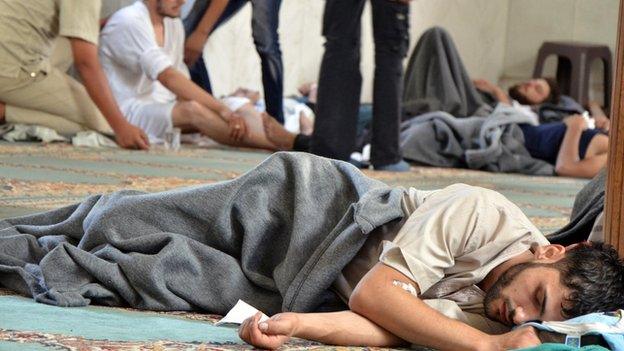Europe: All change on Iraq
- Published
- comments
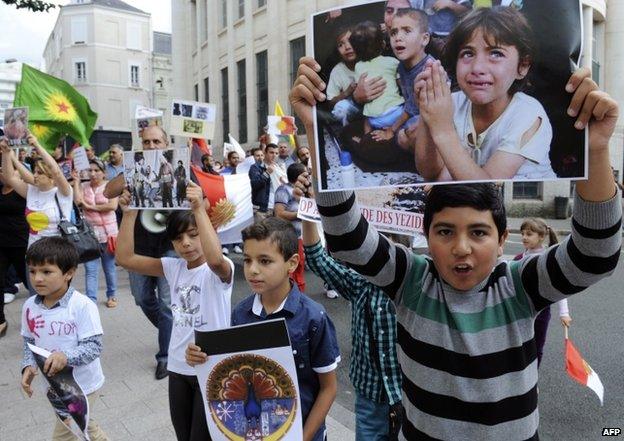
France, home to Yazidi refugees and a large Kurdish community, is calling for an international conference
In just a few days in August everything changed. Or that is how it seems in Europe. The language of politics is different.
French President Francois Hollande said: "I believe the international situation is the worst we've seen since 2001" and the 9/11 attacks on New York.
In a matter of days, Europe's leaders have dropped the early assessment that the crisis in Iraq was principally humanitarian. The helicopter rescue missions of the Yazidis gave that impression but the reality is different.
The French president went to the heart of the matter. "We can no longer keep to the traditional debate of intervention or non-intervention," he said.
In other words, the old arguments no longer apply. Foreign Minister Laurent Fabius characterised it as a crisis for Europe not just the Middle East.
"We consider," he said, "this terrorist group is of a different level of dangerousness than others. It is in the business of destruction. Today it is Iraq, but the caliphate is the entire region, and beyond it is obviously Europe."
So, in a highly significant move, Germany has agreed to ship weapons to the Kurds.
Sending arms into conflict zones is a major departure for Germany, which has shied away from direct involvement in military conflicts since World War Two.
It was potentially legally problematic but the Germans were helped by EU foreign ministers giving the green light to such arms deliveries.
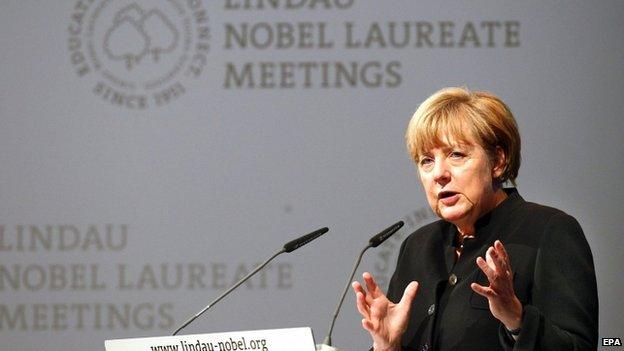
Germany said Europeans could not remain indifferent to what was happening in Iraq
"We can also imagine," said Foreign Minister Frank-Walter Steinmeier, "providing further equipment, including weapons."
Chancellor Angela Merkel, reacting to the murder of US journalist James Foley, said "it shows that this terror group has nothing to offer but cruelty and fanaticism".
Italy, too, stands ready to send machine-guns and anti-tank rockets.
So, as a first step, Europe's four largest nations have decided to put their confidence in the Kurds even if it eventually increases the chance they will push for a state of their own.
The Kurds complain that the French shipments have so far not delivered the equipment they need.
They want anti-tank missiles but President Hollande said the shipment had to be carried out with the agreement of the central government in Baghdad. It suggests the Iraqi government may, even in the midst of this crisis, be reluctant to sanction giving the Kurds sophisticated weapons.
Although the Kurdish forces, the peshmerga, have the reputation of being determined fighters they may not be able to push back Islamic State (IS) forces on their own. They concede that the recapture of the Mosul dam was 60% due to US air strikes.
The Western strategy seems to be to help Kurdish and Iraqi forces to push IS out of Iraq.
They are placing a lot of hope in the new Iraqi government being more inclusive and so weakening support from Sunni tribes for IS. In Syria, they are looking to Syrian government forces to confront the jihadists.
But, as was shown this week in Tikrit, without American air power it may prove very difficult to defeat IS.
President Hollande is looking to holding an international conference - perhaps in September.
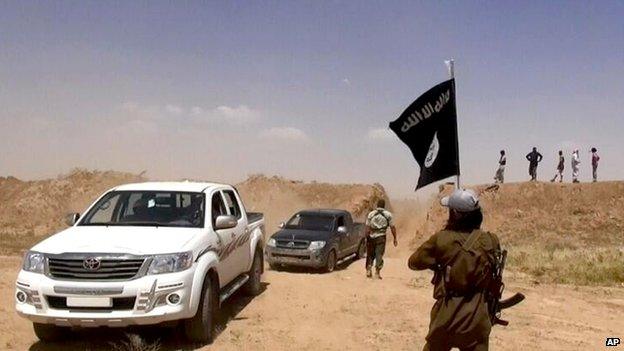
More than 2,000 European jihadists are thought to have travelled to Syria to join Islamic State
"We need a global strategy against this group which is well-structured, well-financed and has very sophisticated weapons," he said. He did not rule out inviting Iran to such a meeting.
Senior figures in Europe privately accept that "soft power" - always the preferred option in Europe - will have its limits against what the French foreign minister called the "caliphate of barbarism".
We are all "people to be destroyed and slaughtered", Laurent Fabius said, "because the goal and raison d'etre of this gang is to kill anyone who does not submit to them".
That is why senior European officials are already saying that they cannot see Islamic State being defeated without military action from outside Iraq and Syria.
This struggle could have far-reaching consequences. Most intelligence estimates say that at least 2,000-3,000 Europeans have travelled to Syria to join Islamic State.
Officials in Paris estimate 900 have gone from France alone. Many European countries will now have to decide how to control these fighters when they return.
Will they turn on their own countries that increase support for the Kurds fighting Islamic State?
Should their passports be cancelled?
What impact will this have on Europe's wider Muslim communities?
And will the crisis prompt a rethink on the wisdom of paring back military spending in Europe?
Will Europe's leaders show a new realism next week when they consider who should represent the EU on foreign affairs?
And will the old Brussels ways of handing out jobs between political groupings suffice?
Or will Europe, facing a raft of international crises, chose the best woman or man for the job?
In August, much has changed.
- Published21 August 2014
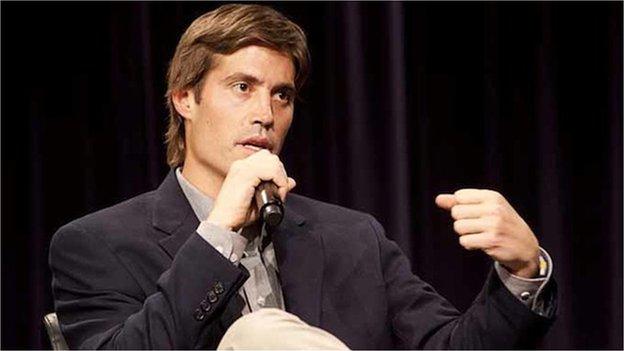
- Published20 August 2014
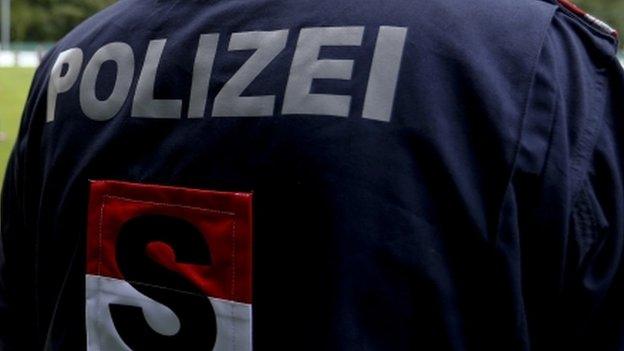
- Published21 August 2014
